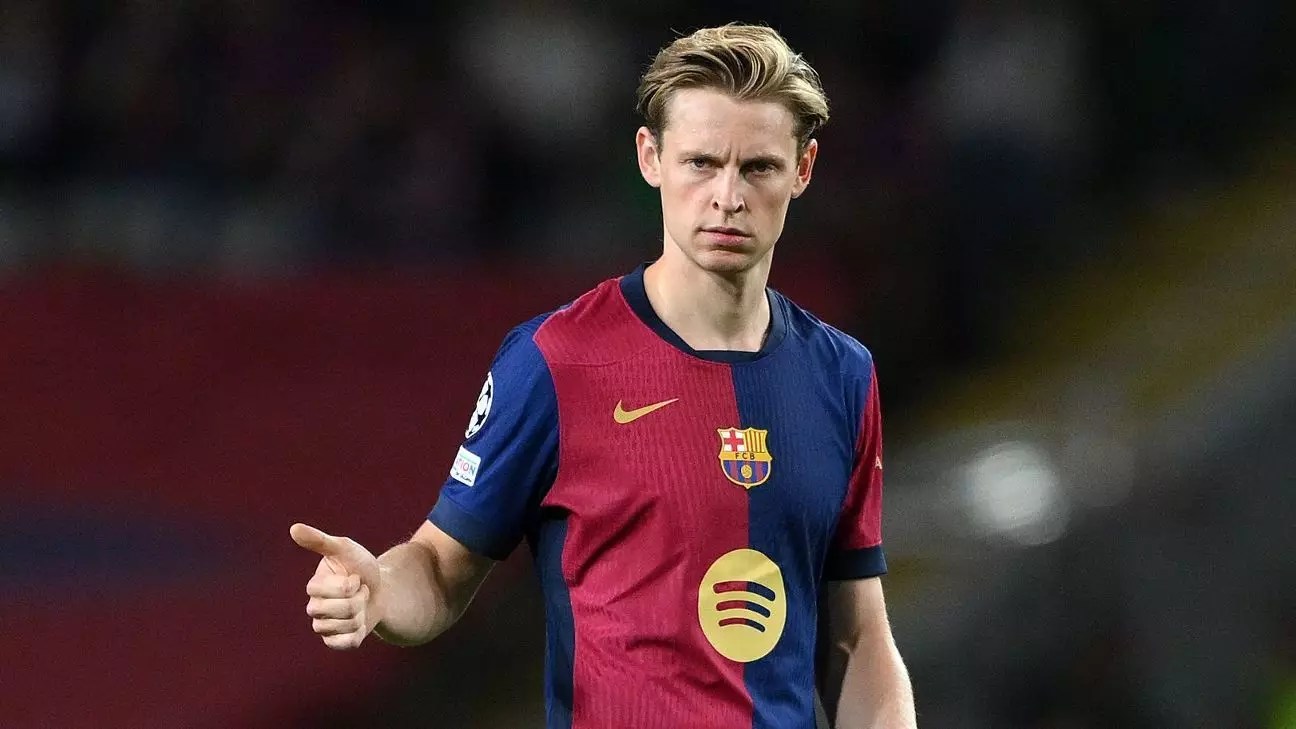Frenkie de Jong’s return to FC Barcelona on Tuesday marked a significant emotional and physical milestone. After an excruciating five-month recovery from a severe ankle injury, the Dutch midfielder stepped back onto the pitch during the team’s stellar 5-0 victory against Young Boys in the Champions League. Coming on in the 75th minute for Lamine Yamal, de Jong’s performance not only underscored his importance to the team but also served as a testament to his tenacity and commitment to the sport. This moment was a culmination of a long and arduous journey, following the painful injury sustained in a Clasico against Real Madrid last April.
Media Scrutiny and Mental Resilience
The journey back for de Jong was not solely a physical challenge; it was also a mental one. During his recovery period, he faced relentless criticism from media outlets that questioned both his commitment and the rationale behind his lengthy absence. The intense scrutiny no doubt added pressure, pushing him to wrestle with doubts about his worth as an athlete within one of the world’s most demanding football environments. De Jong spoke candidly about the toll that such media narratives had on him, acknowledging the emotional weight of the process. His return to the game represented not just a physical rehabilitation but also a reclaiming of his place within the squad and the larger narrative of his career.
A Warm Welcome and Team Dynamics
The reception he received from fans upon his return was overwhelmingly positive. De Jong articulated his gratitude, noting how unexpected yet uplifting it was to feel the support from the stands. “The fans gave me a good reception, and I’m grateful for that because you never know how you’ll be received,” he reflected after the match. Such moments of affirmation act as a powerful reminder of the connection players share with their supporters, especially during challenging times.
Moreover, de Jong’s return comes at a critical juncture for Barcelona. The team, under the guidance of manager Hansi Flick, has shown impressive form. However, de Jong understands the importance of patience and adaptability. He expressed willingness to contribute in whatever capacity the coach deems necessary, echoing a broader team-first mentality. This aligns well with the current ethos of Barcelona, where collective success is prioritized over individual accolades.
When asked about the potential challenges of adjusting to a substitute role, de Jong demonstrated a maturity that reflects his understanding of team dynamics. He stated, “It depends on the coach. He picks the team, and I’m going to give everything I can.” His readiness to contribute, regardless of the role assigned, speaks volumes about his character and leadership qualities. Such an approach not only benefits the individual player but also strengthens the entire squad as they strive for common goals.
In a further illustration of Barcelona’s depth, Ansu Fati also made his second appearance of the season during the same match. The tactical decisions made by Flick, including the substitution timings, indicate a high level of strategic planning aimed not only at winning matches but also at rehabilitating players effectively. Flick underscored the importance of these minutes on the field for de Jong, emphasizing that feeling like a “football player again” was crucial.
Barcelona’s recent performance against Young Boys, which featured stellar contributions from key players like Robert Lewandowski and Raphinha, indicates a team not just finding its rhythm but evolving into a formidable unit that can press aggressively and exploit gaps. Flick’s coaching philosophy, encapsulating a vision of compact, attacking football while simultaneously improving their defensive organization, suggests that the club is on the right path. As de Jong resumes his role, the synergy within the squad could flourish further, setting the stage for exciting competitions ahead.
Frenkie de Jong’s return to Barcelona not only symbolizes his personal triumph over adversity but also represents a pivotal moment for a team striving for greatness. His journey encapsulates the essential narratives of resilience, teamwork, and the relentless spirit of professional athletes. As the season unfolds, fans and analysts alike will watch closely to see how this combination of returning talent and cohesive strategy will take shape on the grand stage.


Leave a Reply